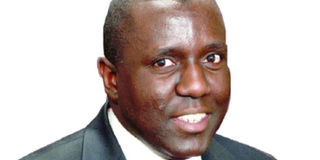Covid-19 pandemic likely to restructure global economy

Covid-19 has claimed 1 million deaths so far. Global deaths have reached 1 million and are rising mostly in the northern countries. The United States has recorded 200,000 deaths or one fifth of the total. More than 20 million people have recovered from corvid leaving another 10 million still showing symptoms or requiring treatment. Hospital stays for Corvid-19 patients are increasingly longer as measures to save and extend life have improved and certain practices curbed. A Covid patient may spend 14 days in hospital compared to the average of 3-4 days which left doctors and medical personnel exhausted.
Covid-19 has exposed many medical systems in both rich and poor countries as ill-suited to even handle a more lethal threats like manufactured germs or chemical warfare or massive payloads laced with chemicals. Many countries have realised that they do not have healthcare systems, two digit ICU beds is all they have.
Covid has also emphasised the rich-poor divide. It is a classless disease that is airborne. So even in countries like Uganda, which have reduced restrictions, while focusing on public safety, cases are likely to rise if the treated patients develop a more resistant second wave virus.
Covid-19 has placed US relations with China, the two world’s largest economies, on ice. China has been gradually scaling its investment in US treasuries. Exact figures are hard to come by, but Japan and China now jointly own just 10 per cent of US sovereign debt.
Tourism has been a growing area driven by rising numbers of retirees globally many of whom have never travelled in their working lives. Covid is bad news for them as they are more likely than others to have pre-existing chronic diseases like respiratory illnesses, diabetes, hypertension, etc.
Life insurance holders may soon find that their policies now have a pandemic carve out. In the 1980s, people who had built on the coastlines in the southern United States found that they had to purchase flood insurance and only from the government separately, a fact that made homeownership in tenuous areas more expensive.
Recently, Air France reported a drop of 70 per cent in air travel, although this figure is misleading as many people in Europe travel for work on a regular basis. British Airways, Qantas and Air France, have all retired their jumbo jets Boeing 747 sending them to the United States Mojave desert in California to be sold as scrap. Airbus 380 will go out of production next year after enduring massive cancellations.
Only President Trump has ordered a new 747 four-engine jet, which can run on just one engine. Kenya Airways has converted part of its fleet from passenger to cargo planes and exercised its rights to terminate leases on other aircraft.
Policy makers responding to Covid-19 in Eastern Africa must create stimuli to rebalance their economies. Medical and food will remain very important as global commodity market prices (coffee, sugar) are at record lows. In other sectors like education, they may be unable to attract investment due to the high cost of capital. Both local and international schools have faced it rough during Covid.
The effects of drops in Foreign Direct Investment will be felt. Poorer countries are likely to face the tough choice of import substitution versus a collapse in their domestic currencies. Countries with proforma capital controls such as Sudan have an official exchange rate that is one eighth the black-market rate. Uganda must think carefully about reducing cost of production for its farmers as WTO and EU agreements limit erection of tariff barriers.
A 50kg bag of potatoes or onions delivery and duty paid (DDP) arrives in Uganda at just 70 per cent of the cost. Some comparisons like Chinese fish, pork and chicken from our neighbours are mind-boggling, but they are paying taxes to the Treasury.
Shrinking economies have reduced the breathing space for borrowing.
Mr Ssemogerere is an Attorney-At-Law and an Advocate.
[email protected]


